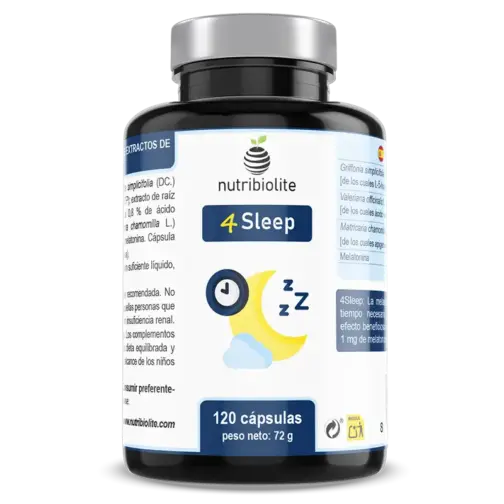An everyday scene: you have dinner, turn off the light and look for rest. A clinical study published in JMIR Formative Research in 2025(DOI: 10.2196/58192) showed that incorporating a food as simple as walnuts into the evening meal can increase night-time melatonin levels and promote more stable sleep. The research, conducted by US teams with support from the California Walnut Commission, followed healthy young adults for eight weeks and looked at how a small variation in diet affects the internal clock.
What does this mean for you? The main result was a slight but significant increase in a urinary marker of melatonin when participants dined on walnuts, accompanied by a trend towards more stable sleep (as measured by activity clocks). Although no significant increase in total hours slept was observed, greater regularity and fewer night-time awakenings were detected. These improvements may be particularly useful for those seeking to optimise their routine without resorting to drugs or drastic changes. The study also points out its limitations: short duration, young sample and awareness of the type of diet followed.
The connection between food, tryptophan and the natural sleep cycle
Every night, the body orchestrates a delicate transition from wakefulness to deep rest. As evening falls, the body’s internal production of melatonin gradually increases, a key signal to prepare all systems for rest. Walnuts play a part in this process by providing plant-based melatonin and tryptophan, the essential amino acid that starts the natural chain towards nocturnal equilibrium: it is first transformed into 5-HTP, then into serotonin and finally into melatonin.
Unlike other nutrients, tryptophan relies heavily on dietary and hormonal context to cross into the brain and activate this physiological pathway. So small gestures like choosing tryptophan-rich foods or adding nuts to your dinner can make the difference between a restless night and a smooth one.
Cultivating habits that respect your biological clock
Getting a good night’s sleep starts long before you close your eyes. It’s not enough to turn off the lights; the body needs consistent signals throughout the day to adjust its circadian rhythm. Three signals stand out: exposure to natural light in the morning, gradual reduction of light stimuli after dinner, and a diet aligned with night-time metabolic needs.
Light dinners rich in tryptophan (such as oatmeal or nuts), avoiding blue screens before bedtime and maintaining consistent routines help your body produce its own melatonin just when it needs it. These habits reinforce what modern science has taught us: sleep is a logical consequence when the whole environment is supportive.
When you need to reinforce your rest, follow the physiological route
There are times when your internal cycles get out of sync: long journeys, sustained stress or simply accelerated life changes can make the natural transition to restful sleep difficult. At such times, resorting to gentle supports that follow exactly the physiological path makes more sense than looking for quick or artificial solutions.
4Sleep is a supplement designed on this very principle. It contains melatonin 1 mg, a dose endorsed by the European Food Safety Authority to reduce the time it takes to fall asleep when taken before bedtime. Its formula also includes 5-HTP extracted from Griffonia simplicifolia, a direct precursor within the body to synthesise serotonin and then melatonin during the dark hours. Standardised extracts of valerian and chamomile help to create a mental environment conducive to rest.

Melatonin 1 mg and 5-HTP with relaxing plants to facilitate the onset of rest, as a complement to specific night-time habits. Responsible use.
Put it into practice by taking care of your natural rhythms.
There is no need to change everything at once or look for miraculous solutions. The important thing is to take small, consistent actions every day: eat an early dinner, include foods rich in tryptophan such as nuts or oatmeal, reduce intense light before sleep and integrate physiological supplements only if you really feel that your cycle needs temporary support.
Remember to always consult your healthcare professional if you have any questions about supplements or if you are already following specific treatments to get better rest.
Frequently asked questions about melatonin natural sleep and 4Sleep
When is it advisable to take a supplement such as 4Sleep?
It can be useful when natural rhythms are altered by jet lag, night work or specific periods of prolonged stress when the usual routines are not enough to initiate rest properly.
Why combine melatonin with 5-HTP?
This combination respects the body’s natural physiological sequence because it provides both the direct signal (melatonin) and its endogenous precursors (5-HTP) needed to produce serotonin during the night.
Is it safe to use every day?
Yes, following responsible indications (one capsule half an hour before bedtime), it can be used for weeks without generating dependence or daytime sleepiness according to regulated European trials.
Do the nuts replace the supplement?
They are not mutually exclusive; both support similar pathways but to a different degree and intensity. Nuts support natural daily processes while the supplement works when there is an added need.
What other habits enhance these effects?
Maintaining regular sleep/wake times even on weekends helps a lot along with light magnesium/tryptophan-rich dinners and avoiding bluescreens after dinner further enhances any chosen physiological strategy.
This content is informative and is not a substitute for the advice of a health professional.















